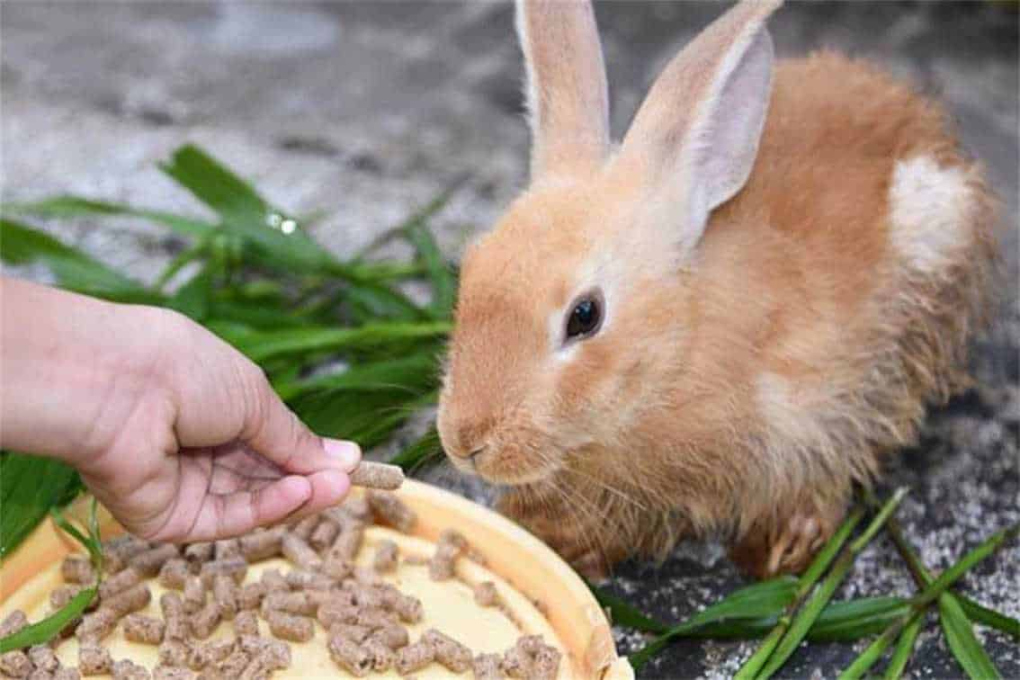How Often Do You Feed Rabbits?
Rabbits are adorable and popular pets that require proper care and attention, including a well-balanced and consistent feeding schedule. Feeding rabbits the right amount and type of food is essential for their overall health and well-being. In this article, we will discuss how often you should feed your rabbits and provide some important guidelines to ensure they receive the necessary nutrients.

Feeding Frequency
When it comes to feeding rabbits, it is crucial to establish a regular schedule to ensure they receive their daily nutritional requirements. Adult rabbits should be fed at least once a day, although some owners prefer to split their meals into two smaller servings. This helps prevent overeating and allows the rabbit to have a more consistent supply of energy throughout the day.
Types of Food
Hay
Hay is an essential component of a rabbit’s diet. It provides the necessary fiber and helps maintain healthy digestion. Rabbits should have access to fresh hay at all times, and it should make up the majority of their diet. Timothy hay, orchard grass, and meadow hay are commonly recommended types of hay for rabbits.
Pellets
Pellets are another vital part of a rabbit’s diet, but they should be given in moderation. High-quality rabbit pellets should be made from natural ingredients and contain a balanced blend of fiber, protein, and other essential nutrients. Adult rabbits should generally be given approximately 1/4 cup of pellets per 5 pounds of body weight per day.
Fresh Vegetables
Fresh vegetables are a great addition to a rabbit’s diet, providing them with additional nutrients and variety. Safe vegetables for rabbits include leafy greens like spinach, romaine lettuce, and kale, as well as vegetables like carrots, bell peppers, and cucumbers. It is important to introduce new vegetables gradually to avoid upsetting the rabbit’s digestive system.
Water
Alongside a proper diet, rabbits require a constant supply of fresh, clean water. It is essential to provide them with a water bottle or a heavy ceramic bowl that cannot be tipped over easily. Ensure that the water is changed daily to prevent any bacterial growth or contamination.
Feeding Guidelines
To ensure that you are feeding your rabbits appropriately, follow these important guidelines:
- Provide a consistent schedule: Stick to a regular feeding routine to establish good eating habits for your rabbits. This helps them feel secure and reduces the risk of overeating.
- Monitor portion sizes: Avoid overfeeding your rabbits, as this can lead to obesity and related health issues. Follow the recommended portion sizes for pellets and prioritize hay as the primary food source.
- Introduce new foods gradually: When introducing new vegetables or other foods into your rabbit’s diet, do so gradually. This allows their digestive system to adjust and reduces the risk of gastrointestinal upset.
- Consider your rabbit’s age and size: Younger rabbits may require more frequent feedings, while older rabbits may benefit from fewer pellets and a larger proportion of fresh vegetables. Consult with a veterinarian to determine the specific needs of your rabbit based on its age and size.
- Observe dietary preferences: Rabbits can have individual preferences when it comes to certain types of food. Monitor what your rabbit enjoys and adjust their diet accordingly, while still ensuring they receive a balanced diet.
FAQs (Frequently Asked Questions)
1. How much hay should I feed my rabbit?
Rabbits should have access to unlimited fresh hay at all times. It should make up about 80% of their diet and is crucial for maintaining healthy digestion.
2. Can rabbits eat fruits?
While fruits can be given as occasional treats, they should not be a significant part of a rabbit’s diet due to their high sugar content. Stick to vegetables as the primary source of additional nutrients.
3. Is it okay to free-feed rabbits with pellets?
Free-feeding rabbits with pellets can lead to overeating and obesity. It is best to follow the recommended portion sizes and establish regular feeding times to ensure a balanced diet.
4. How often should I change the water for my rabbits?
The water for rabbits should be changed daily to ensure freshness and prevent any bacterial growth or contamination. Provide them with a clean source of water at all times.
Feeding rabbits a well-balanced diet is crucial for their overall health and well-being. Establishing a regular feeding schedule, providing unlimited access to fresh hay, and offering appropriate amounts of pellets and vegetables are essential. By following proper feeding guidelines and consulting with a veterinarian when needed, you can ensure that your rabbits receive the necessary nutrients and lead a happy and healthy life.
Related Articles…
Copyright Notice:
All images featured on this site are sourced from the internet, copyrights belong to respective owners. Should you own any image and require it to be removed, please contact us.